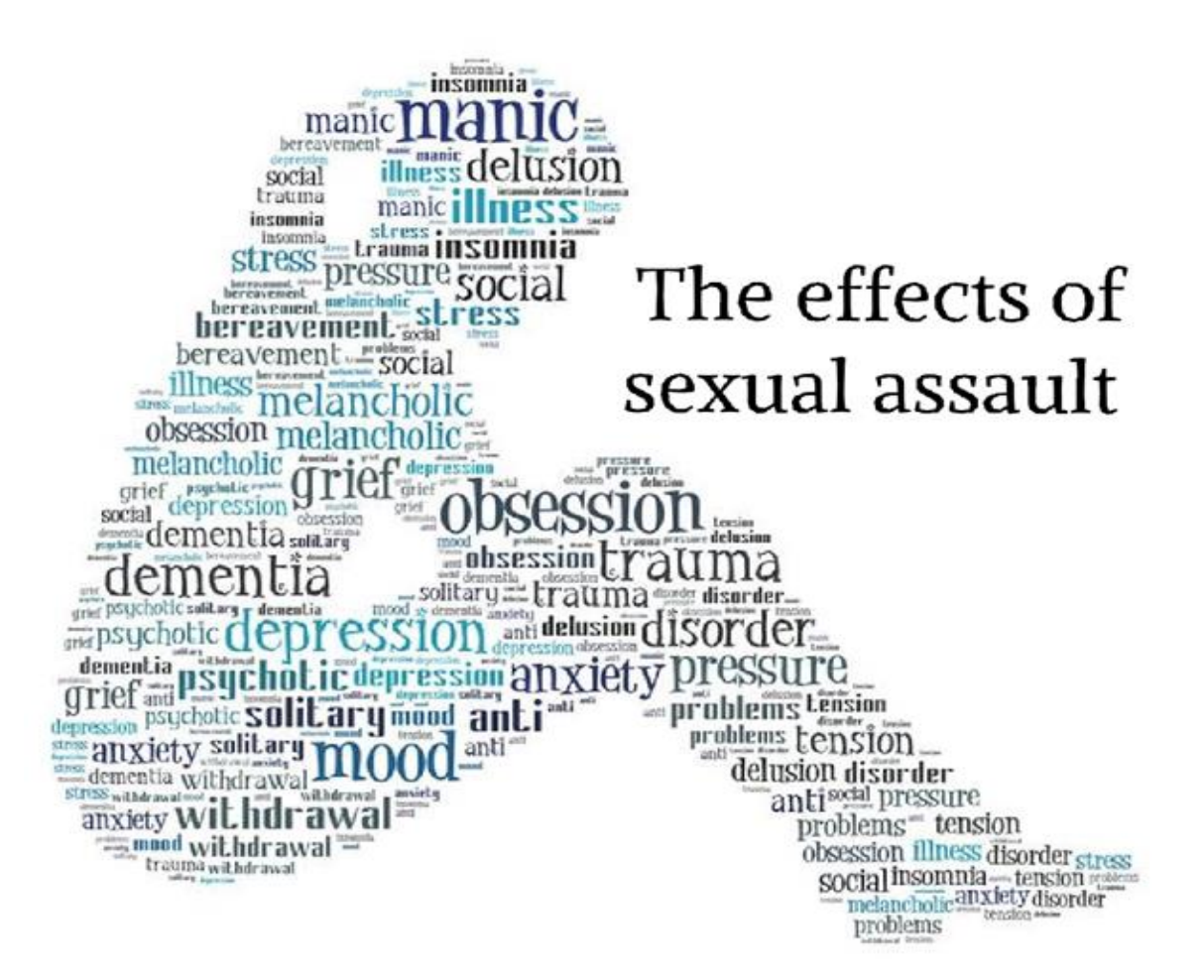April Newsletter Sexual assault impacts the lives of both men and women, and the resulting trauma often goes far beyond the event itself. People who experience sexual assault are more likely to experience posttraumatic stress, depression, anxiety, suicidal thoughts, drug and alcohol addictions, problems with intimate relationships, and difficulty at school and/or work

MENTAL HEALTH ISSUES RESULTING FROM SEXUAL ASSAULT
After sexual assault, survivors may feel their bodies are not really their own. Survivors o ften report feelings such as shame, terror, and guilt. Many blame themselves for the assault. Due to the trauma and negative emotions linked to sexual abuse, survivors may be at risk for mental health conditions. Survivors of sexual abuse may develop:
• Depression: The loss of bodily autonomy is often difficult to cope with. It can create feelings of hopelessness or despair. It may also reduce one’s sense of self-worth. Depressive feelings may be mild and fleeting, or they can be intense and long-lasting.
• Anxiety: The loss of bodily autonomy can also cause severe anxiety. Survivors may fear the attack could happen again. Some may experience panic attacks. Others may develop agoraphobia and become afraid to leave their homes. In some cases, a survivor may develop a chronic fear of the type of person who harmed them. Someone who was raped by a tall, fair-haired man with blue eyes may instinctively dislike, mistrust, or fear all men who match that description.
• Posttraumatic stress (PTSD): Someone who survived sexual assault may experience intense memories of the abuse. In some cases, flashbacks may be so disruptive they cause a survivor to lose track of surroundings. A person may also develop a related condition called complex posttraumatic stress (C-PTSD). C-PTSD yields a chronic fear of abandonment in addition to symptoms of traditional PTSD. Some people with C-PTSD also experience personality disruptions.
• Personality disruptions: Sexual abuse can sometimes result in personality disruptions such as borderline personality. The behavior linked with personality disruptions could actually be an adaption to abuse. For instance, a characteristic of borderline personality is a fear of abandonment. That fear might not be adaptive in adulthood. Yet avoiding abandonment might have protected someone from sexual abuse as a child.
• Attachment issues: Survivors may find it challenging to form healthy attachments with others. This is especially true among children who have been abused. Adults who were abused as children may have insecure attachment patterns. They could struggle with intimacy or be too eager to form close attachments.
• Addiction: Research suggests abuse survivors are 26 times more likely to use drugs. Drugs and alcohol can help numb the pain of abuse. Yet substance abuse often leads to the development of different concerns.
Sexual abuse does not only leave psychological scars. It can also have long-lasting health consequences. Sexual abuse makes it hard to trust. You’re never sure if someone wants to use you. If someone appears caring and kind, do they really want to take and not to give? Not only don’t you trust others, you don’t trust yourself, but you also live with a deep sense of shame. All of this makes life very difficult. The impact of sexual assault is real. Don’t suffer in silence. Receive the help you desire. For more information contact InnerPeace Counseling Center, (704)937-2286 or info@innerpeacecounselingcenter.com

